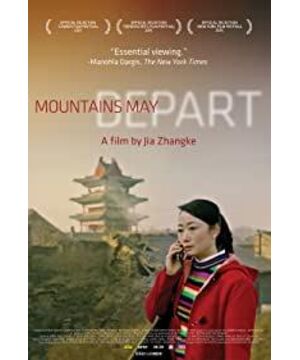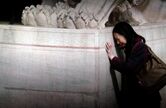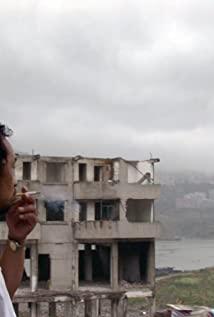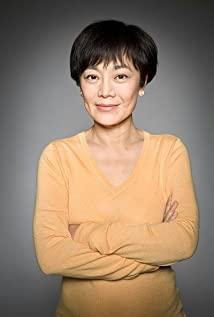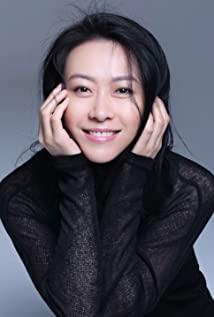"Don't watch it."
"Go." A
friend bought a ticket with a mobile phone. We walked a few hundred meters to Cathay Pacific Cinemas, and we also visited Uniqlo on the way. Attendance was good and people were in a relaxed mood. After all, this is Shanghai, another "hometown" of Jia Zhangke.
I came to it with a critical mind. Although I like "Xiao Wu" very much, I am full of prejudice against him for some reason. My prejudice against him stems from prejudice against all sixth generation. I'm fed up with these real-life middle-class people caring endlessly for the bottom.
The first paragraph: Zhao Tao appeared with a strange expression. It's like having too many beauty needles. And she kept smiling. Smile very hard. Obviously she can't play a 25-year-old woman who is passionately loved by two men, and her persuasiveness is obviously not enough. After I was critical of this for ten minutes, maybe it was when Ye Qianwen's "Precious" sounded, or maybe before that: Liang Zi was kicked out of the coal mine by his love rival, and he still went to Zhao Tao as if nothing had happened, and helped her father look at the store , eat a plate of dumplings with her. He is very sure that the world will always reconcile with him, as if this indifference is omnipotent self-protection. In short, I suddenly didn't care about Zhao Tao's bulging face and contrived smile, and I even thought that maybe this was reasonable: a woman who was caught in a love triangle and couldn't choose, maybe that's how she smiled. In the end, she had to choose. This choice was rational, but no rationality could predict life.
The second paragraph: I am glad that Liang Zi, as a sick miner, is not overemphasized, and in this desperate scene, there is no anger, only the usual indifference and despair. He said he would never come back, but he came back anyway. The wedding invitation that he left 15 years ago is still there. The world treats him smugly, but his hometown still has pity and sympathy for him. He couldn't open his mouth to borrow money from a friend. Finally, his wife found Zhao Tao. At this time, he was already "Mr. Xu". He divorced Zhang Jinsheng and his son was not around. My father went to celebrate his comrade's birthday every year but died in the waiting room (also the old love is more important than the mountain). When my son came back from Lele to attend his grandfather's funeral, he was very distant from his mother and called "Mummy" as soon as he opened his mouth. In the funeral scene, Zhao Tao acted brilliantly. Maybe some people didn't realize it, but people like us who have attended funerals in the countryside feel a sense of familiarity (so young people in small towns really can't help but be moved by films like Jia Zhangke). The focus of this part is still on Zhao Tao, which man she chose might not be right. And now she even lost her own son completely. Loss is almost inevitable. And I think this whole movie should be Jia Zhangke's real feeling: as a successful generation, he still cannot avoid the sinking of middle age and so many entanglements and losses. I can only miss old people who have long since disappeared.
The third paragraph: Zhang Aijia is indeed old, 62 years old. But she still exudes femininity and is undiminished. Old and young love is very reasonable, but the audience even booed. Before that, the audience was very impressed, laughing, and the atmosphere of watching the movie was good. But when the old and the young lay together, the audience still had to show a breakdown to defend their morality. Yet I think it's good that the teenager is looking for the memory of his mother, a moment of solace between two people who have left their homes. When Zhang Jinsheng questioned "what is freedom" with a gun, he was talking about an unsolved proposition after the domestic GO WEST: We left a bad hometown and came to a better place, but we still can't get happiness. And I can't go back to my hometown.
The nostalgia of the middle-class generation. A subject that suits Jia Zhangke, he finally made it. Although some slightly symbolic things in the film, including a magical plane that landed inexplicably, showed some kind of entanglement in Jia Zhangke, but he finally began to examine his own spiritual problems. Wouldn't it be nice to stop tangled up in the bottom layer that he had actually been far away from?
"Tao" is the mother, the country, and the nostalgia. It is something that has been abandoned, abandoned, cannot be returned, and cannot be forgotten. It is something that will never be found, long lost, but still there somewhere. It is something that people without homesickness may not understand.
Since then, he has turned to Jia Zhangke as a passer-by. Hope he looks at himself more. Why not make the next movie about the director and muse/actress/inseparable other family duo? It is not appropriate to always operate on others instead of oneself, even if it is to show love.
The English title of the film is "mountains may depart", and it is said that the reference is "Isaiah" (ESV translation): "The mountains may depart, and the hills may be moved; but my love will not leave you, My appointment is safe and I won't move..." However, after watching the movie, we walked together, looking for a place to have something to drink and continue chatting. While waiting for the red light, my friend said, "mountains may depart, and the mountains will also be separated..." Some emotion came through the darkness. I prefer this translation which may not be right.
View more about Mountains May Depart reviews


